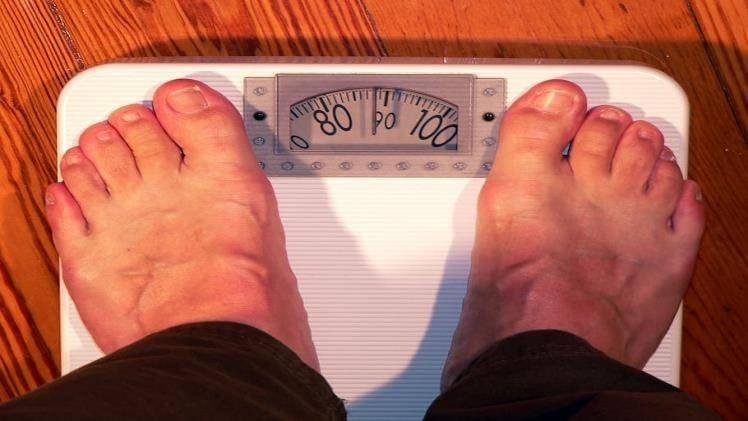Remove a barrier to a healthy lifest minimally edited verbatim transcripts of 30 semi-structured. Interviews with participants were analysed using framework analysis. Themes and sub-themes were identified. Remove a barrier to a healthy ifest and facilitators were categorized into personal, interpersonal, and environmental levels.
Personal barriers included lack of motivation and willpower to exercise regularly and eat a healthy diet. Interpersonal factors were influenced by the negative attitudes of family and friends.
Remove a Barrier to a Healthy Lifest Get a good night’s sleep
Many people spend a lot of time and effort exercising and eating healthy but don’t give enough thought to getting a good night’s sleep. It’s important to get a good night’s sleep because it helps the body repair itself and prepare for the next day. It also plays an important role in mental and physical health. Research has shown that a lack of sleep can lead to obesity, heart disease, and poor health outcomes. In addition, getting a good night’s sleep can help improve mood and reduce stress.
Getting a good night’s sleep can be easy with simple changes such as: Going to bed around the same time each night. Avoiding caffeine and alcohol at least three hours before going to bed. Practicing relaxation activities such as yoga or meditation. Exercise can improve sleeping habits but make sure to not do vigorous exercise too close to your bedtime. For more information on how to get a good night’s sleep, visit Michigan State University Extension’s Food & Health website.
Exercise regularly
While the importance of exercising regularly is well-established, it is often difficult to do so. A qualitative study found that participants identified remove a barrier to a healthy lifest to adopting healthy lifestyle behaviours including competing priorities like work, time constraints, and resources like facilities. However, the study also found that participants viewed personal facilitators such as willpower and motivation as important. These findings are particularly interesting as the study was conducted during the COVID-19 pandemic. The full report is available online.
Remove a Barrier to a Healthy Lifest Eat a healthy diet
Eating a healthy diet is essential for overall health, but it can be difficult. Many people struggle with overeating and have a hard time resisting unhealthy foods like candy, chips, or fast food. If you are having trouble eating a balanced diet, try making small changes, such as adding in more fruits and vegetables or choosing healthier options when you eat out.
Several participants mentioned that they lacked the willpower and self-discipline to follow a healthy lifestyle, particularly with respect to diet. They also reported that they were influenced by the negative attitudes of family and friends towards healthy lifestyle habits. Additionally, some participants cited situational factors, such as being busy or tired, as remove a barrier to a healthy lifest to exercise and healthy eating. These barriers can be overcome by setting realistic goals and developing a strong support network.
Get enough sleep
A good night’s sleep is important for maintaining mental and physical health. It can help prevent weight gain and promote heart health, as well as boost your mood and energy levels. Sleep also helps your body to maintain its immune system and heal from illness. However, not getting enough sleep can increase your risk for depression, low motivation and memory problems. It can even lead to difficulty with balance and coordination, which can be dangerous during exercise or sports.
The key to a good night’s sleep is consistency. Try to go to bed and wake up at the same time every day, including weekends. This reinforces the body’s internal clock and can improve your sleep-wake cycle. Also, make your bedroom a sleep-friendly environment. Keep it quiet and dark, at a comfortable temperature and free of electronic devices. Avoid large meals and caffeine before bed.
If you’re having trouble sleeping, talk to your doctor. There may be a medical cause for your problems, such as sleep apnea or thyroid disease. Your doctor may also suggest cognitive behavioral therapy-insomnia or other treatment options.
Change your environment
Your environment influences your choices and habits far more than you realize. Everything around you impacts how active you are, what you eat, how much sleep you get and more. It is important to consider how these factors influence you and work on changing them when possible.
For example, studies show that people eat more when they are served more food or eat off of larger plates. By putting healthy foods in the front of the fridge, leaving dental floss on the bathroom counter or painting footsteps on your stairs to encourage you to take them instead of the elevator, you can change your environment so it supports your goals.
It is also important to Remove a barrier to a healthy lifest minimally edited verbatim transcripts of 30 semi-structured. Interviews with participants were analysed using framework analysis. the temptations that are preventing you from meeting your health goals. For instance, if you are always sitting with your back to the TV in the living room, turning it off and doing something else will help you avoid zoning out in front of the screen. The same is true for things like fast food, sweets and alcohol.
Get support
A strong support system is essential for a healthy lifestyle. Whether it’s friends and family, a supportive community, or a professional therapist, having people that will help you navigate the challenges that life throws at you can make all the difference in your success in healthy behaviors. Studies show that people who are more connected to a support network are less likely to suffer from serious illnesses like leukemia and heart disease. These people can provide emotional support by listening and showing affection through hugs, physical/instrumental support by helping with tasks such as house chores or cooking, or informational support by sharing their point of view or factual information about specific topics. It’s also important to surround yourself with individuals who will encourage you in your health goals, not discourage them.













